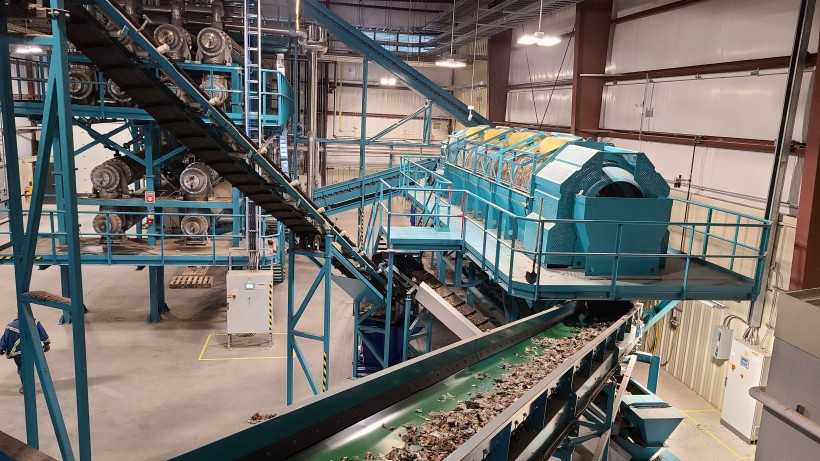Circular economy startup Sustane Technologies’ first shipment of naphtha fuel derived from waste plastics is on its way to a client in Europe.
In an interview, CEO Peter Vinall said the company tested a variety of possible plastic sources for its plant in Chester, N.S., such as rejected plastics from recycling streams. The process has been made more efficient by Sustane developing a suite of in-house automation technology to help sort plastics, he said.
Sustane itself began with technology developed by CTO Javier De La Fuente. He headed up the initial research in Spain to process landfill waste into biomass pellets with the help of steam. Then, in 2014, he launched the company in Nova Scotia with Vinall and CFO Robert Richardson.
“We’re active in Alberta and Texas right now on some projects, but job one for us is really getting our Chester, Nova Scotia plant up to full capacity,” said Vinall.
“We’ve got many communities and groups that want to work with us to develop projects, but we’ve got to make sure we have the capacity to do that.”
In addition to the biomass pellets and naphtha, Sustane also processes waste plastic into diesel fuel. And because Sustane’s diesel is quite light, it can be used as an input for plastic-making, in lieu of the naphtha. The company recently began a large scale trial with a customer in the U.S., to which it is shipping 25,000 litres of diesel. Once the Chester plant is operating at maximum capacity, Vinall said he expects to produce that volume every few days.
The naphtha research and development work, meanwhile, was funded with $950,000 from the Atlantic Canada Opportunities Agency, announced earlier this week, while the biomass pellets received Canadian Food Inspection Agency approval for use as fertilizer last fall.
Sustane currently has 20 employees, mostly based in Chester. In a departure from standard innovation economy hiring practices, Vinall often favours former power engineers for roles in the production facility: “We find that they have three to four years of fairly practical experience and training. … So it just gives them a good baseline of mechanical aptitude and some exposure to operations.”
Vinall's team is also investigating the possibility of using the biomass pellets to produce natural gas, and is collaborating with a major American gas company. North of the border, though, a lack of regulatory framework for pricing natural gas in Nova Scotia is forcing the company to look to other parts of Canada to sell its product.
“One of the challenges in Nova Scotia is that there’s not a large gas market that you get in places like British Columbia, or Quebec, or the U.S., where it’s possible to get preferential pricing for renewable products, renewable natural gas,” Vinall said “We don’t see that so much.”










